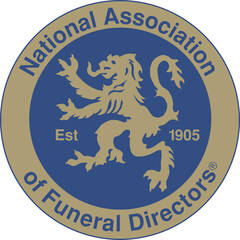A new perspective on the fight against loneliness

Each person’s view on the world is shaped by what we experience, and it turns out there’s nothing like a global pandemic to transform your perspective. It’s there in everything from realising how much we owe key workers, to watching an old movie and catching yourself worrying the characters are sitting too close.
More subtly, priorities have come into focus.
Not being able to see people has a powerful way of revealing how much they mean to us, while a slower pace of life can reveal the joy to be found in small things. We’ve become a nation of jigsaw enthusiasts, gardeners, crafters and bakers, calling old friends and waving at neighbours at 8pm every Thursday. With planes grounded and traffic low, clear skies and birdsong are a reminder of the environment and our responsibility to protect it. The things that matter are suddenly clear.
Happening, as it has, to a whole population at once, this sharpening of perspective goes beyond the personal, to a shared understanding which might just help communities work together towards a better future.
One such realisation has been a rising awareness of loneliness and the damage it does. Many people have sadly learned what it is to be lonely in recent weeks, and those at particular risk, such as people living in care homes, are at the forefront of national conversations.
Having run Never Alone, an initiative to build connections across care homes and the community for almost two years, we know no one is immune from loneliness. People of every age need meaningful connections in their lives.
Research by The British Red Cross conducted before COVID-19 found nine million people in the UK are often lonely. That’s more than the population of London. But if loneliness is common, it can also be eased in mercifully simple ways. We need people, friendships and the kind of community connectedness that has shone through in recent weeks.
Through our events programme we’ve seen the difference that small changes can make. Coffee mornings, bingo nights and exercise groups cost little to run, can be held virtually during lockdown, and are easy routes into friendly social contact and moments of connection. Make those events regular and casual connections can become lasting friendships.
Some of the care home residents we’ve worked with have told us they thought a social life was behind them and were delighted to find it wasn’t. And it’s not just those in care homes. The same Red Cross survey found 4.5 million people worry they wouldn’t have anyone to support them if something bad happened to them. It’s time this changed!
The fight against loneliness has a wonderful new ally in Captain Sir Tom Moore. The 100-year-old veteran who captured the world’s imagination and raised more than £36million for the NHS has set up The Captain Tom Foundation with his family to combat loneliness, support hospices and help people facing bereavement.
Sadly, the link between grief and loneliness is one we know well. We started Never Alone because our funeral directors saw how grief can lead to loneliness and equally how the presence of social connections can make all the difference to someone’s ability to cope through grief. Some customers would pop in to see us, just for a chat, months and sometimes years after a bereavement. Our funeral directors wanted to do something to help beyond simply being there.
Despite all the difficulties and sadness of the time we’re living through it is heartening to see loneliness taken seriously and prioritised as a very real threat to health and happiness. For research and resources head to The Campaign to End Loneliness’s website, and, if you live in the South East join our Never Alone Facebook Groups to hear about events near you:





